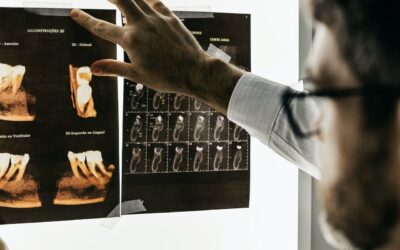It’s safe to say that house calls are things of the past. But modern technology in the form of mobile phones is ushering in something that some might say is even better.
For decades people have been able to call answering services and receive calls back from their physicians or some other health care professional, which took the place of old fashioned house calls. Answering services are still in use today, and they’re still a far better option than going to a hospital emergency room or clinic to wait for what ends up being nothing more than a brief consultation. The advent of mobile phones has started to change that, because nothing beats being able to talk to your own doctor whenever you may need him. A patient may not have his doctor’s personal cell phone number, but the doctor can still be reached in a moment’s notice by someone who does, and then he can call the patient directly. Such accessibility means the world to some people. But that’s not the only benefit mobile phones bring to the health care industry.
Smart phones are, essentially, pocket computers that give doctors access to information that would otherwise be unavailable them. Patients, too, can access important health information whenever they want. The University of Pittsburgh Medical Center’s (UPMC) HealthTrak platform, for example, has a MyChart app for iPhones that allows patients with HealthTrak accounts to do things such as send secure messages to their physicians, view test results and check appointments. This type of convenience is particularly important to people who lead busy, active lives. The beauty of mobile phones is that they have permeated all nations.
In Africa, for instance, the Praekelt Foundation provides products like TxtAlert, which, according to the foundation’s website, alerts anti-retroviral treatment (ART) patients about their next visits to the clinic and allows them to send free “please call me” messages when they want to re-schedule. Such innovations are what excite people like Qualcomm’s chairman and CEO Paul Jacobs about the future of mobile in health care.
At the 2011 mHealth Summit, which convened in Washington, D.C. in early December, Jacobs predicted that between late 2011 and 2014, four billion smart phones would be sold, and two billion of them would go into markets “where there hasn’t been connectivity before.” He also predicted that by 2020, 160 million Americans would be treated remotely. Some UPMC HealthTrak users already have that capability through e-visits. A patient fills out a questionnaire that is then forwarded to her doctor. If the doctor determines that no visit is necessary, he will diagnose and recommend treatment all via HealthTrak. If the patient has the MyChart app on her smart phone, she can access this information while waiting to be served in a restaurant, riding on public transportation or sitting at home in her living room.
Just as patients had to adjust to the loss of house calls, physicians now have to adjust to mobile phones as part of their health care tool kits. Innovations that are already in use indicate that patients the world over have not only adjusted to, but also embraced the idea of using mobile phones in health care on a regular basis.
Are you in search of a leading IT support firm who understands the role of IT in Healthcare? You have come to right place. We are your local Healthcare IT support specialists. Give us a call today to learn more about how we can help your office with the best IT support services.


